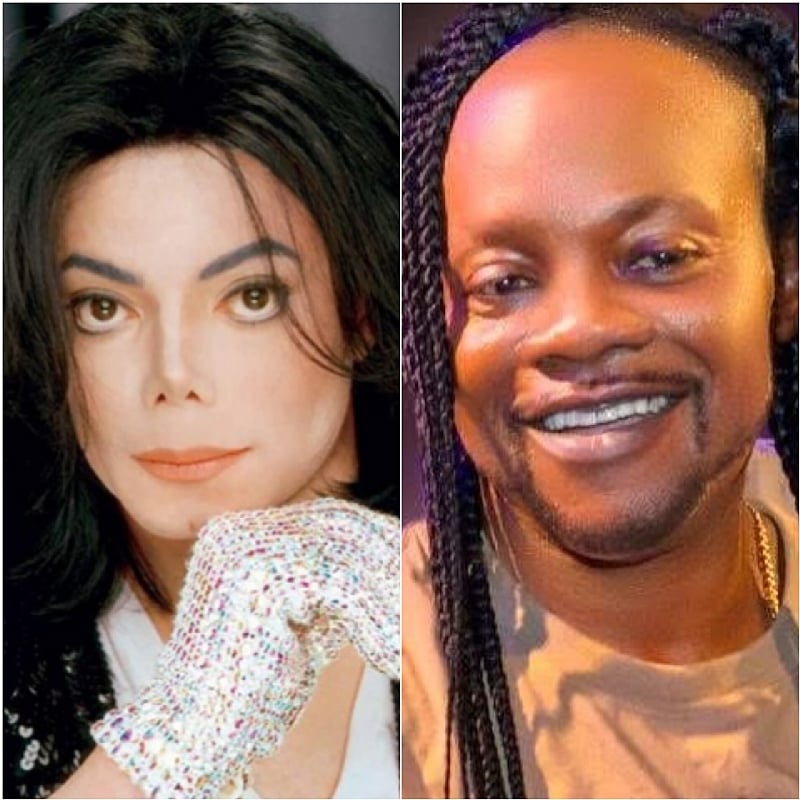The recent passing of Ghanaian highlife icon Daddy Lumba has ignited a fervent discussion about his musical legacy and its impact, sparked by a bold comparison made by Ghanaian politician and musician Kwame Asare Obeng, known as A Plus. In a recent interview, A Plus equated Lumba’s influence to that of the late global pop sensation Michael Jackson, asserting that the primary distinction between the two musical giants lies solely in the language of their expression. A Plus contended that Lumba’s contributions to Ghanaian music are unparalleled, highlighting the artist’s prolific output and enduring popularity, particularly during the peak of his career. This declaration ignited a spirited debate on social media platforms, with opinions divided between those who applauded the comparison and those who emphasized the global reach of Michael Jackson versus Daddy Lumba’s predominantly national and continental influence.
A Plus’s argument centers on the sheer volume and quality of Daddy Lumba’s musical output, particularly in the period leading up to 1999. He noted that during this time, Lumba released an astounding 26 albums, each containing six hit songs, a testament to his creative prowess and consistent delivery of captivating music. A Plus emphasized that every subsequent release after this prolific period should be considered a bonus, further solidifying Lumba’s legacy as a musical titan. This prolific output, combined with the enduring popularity of his songs, forms the basis of A Plus’s comparison to Michael Jackson. He posits that had Lumba sung in English, his reach and recognition would have mirrored, or perhaps even rivaled, that of the “King of Pop.”
The comparison between Daddy Lumba and Michael Jackson, while seemingly audacious, opens a broader conversation about the evaluation of artistic impact and the role of language in achieving global recognition. Michael Jackson’s influence transcended geographical and cultural boundaries, solidifying his status as a global icon. His music, dance, and visual artistry captivated audiences worldwide, making him a household name and a symbol of pop culture. Daddy Lumba, while not achieving the same global penetration, undeniably reigns supreme within Ghana and commands significant influence across the African continent. His music, deeply rooted in Ghanaian highlife traditions, resonates profoundly with his audience, shaping the soundscape of a nation and influencing generations of artists.
Daddy Lumba, born Charles Kwadwo Fosu, captivated audiences with his smooth vocals, poetic lyrics, and timeless melodies that have defined the sound of highlife music for over three decades. His songs are interwoven into the fabric of Ghanaian culture, serving as anthems for celebrations, reflections on life’s joys and sorrows, and a soundtrack to everyday experiences. This deep cultural embedding solidifies Lumba’s position as a national treasure, an artist whose music transcends mere entertainment and becomes a reflection of the nation’s identity. His ability to connect with his audience on such a profound level is a testament to his artistic genius and the power of music to unite and inspire.
The debate sparked by A Plus’s comparison highlights the complexities of measuring artistic impact. While quantifiable metrics like album sales and global reach are often used to gauge success, they fail to capture the nuanced impact of an artist’s work on a specific community or culture. Daddy Lumba’s music, though primarily enjoyed within Ghana and the African diaspora, holds immense cultural significance. His songs are not just listened to; they are lived, danced to, and woven into the social fabric of Ghanaian life. This deep cultural penetration, while geographically limited, arguably carries a weight comparable to the broader, yet potentially less deeply felt, impact of a global icon like Michael Jackson.
The discussion surrounding Daddy Lumba’s legacy serves as a reminder that artistic influence transcends simple metrics and extends into the realms of cultural impact and emotional resonance. While Michael Jackson’s global reach remains undisputed, Daddy Lumba’s profound influence on Ghanaian music and culture is equally undeniable. The comparison, though seemingly disparate, ultimately celebrates the power of music to connect with audiences on a deeply personal and cultural level, regardless of language or geographical boundaries. It emphasizes the importance of recognizing artistic contributions within their specific cultural contexts and appreciating the diverse ways in which music shapes and reflects the human experience.














